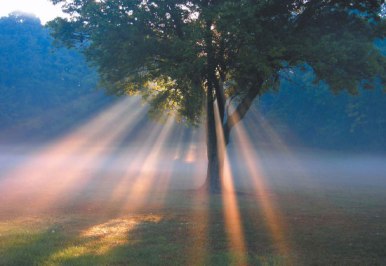Hinduism isn't a religion; it is a parliament of religions. Others say it is a way of life. Hinduism is made up of different faiths; among the image worshippers are Shaivaites, Vaishnavs, Shakts, Tantriks etc. Among non-image worshippers on one side of the spectrum are Arya Samajis, Kabir Panthis, Brahma Kumaris etc. and on the other side are non-theists such as Communists, Agnostics, Atheists etc. Hinduism has no single scripture of authority nor does it have a single founder; the scriptures are various and the founders are many. The theologies and philosophies vary widely and in many cases in direct opposition to one another. Shaivaites vie for supremacy with Vaishnavs and vice-versa. Shankaracharya ji's philosophy of non-dualism is very different from Ramanujachara ji's qualified-monism . The Chaarvaks are completely on another plane being hedonistic in their thinking; eat, live and die.
The word "Hindu" cannot be found in any of the Hindu scriptures. Its first usage is to be found around the 8th century when Muslims settled in the Indus valley. "Hindu" is a foreign word and it comes from the Persian word hind or the Arabic word al-hind, for the area of the Indus valley. This word is in turn derived from the Indo-Aryan word Sindhu meaning 'ocean' or 'river.' Sindhu became Hindhu because those who used it weren't able to pronounce the 'S'; instead pronounced 'H' hence Hindhu. The Persians distinguished between the Muslims and the Sindhus (non-Muslims) who settled in the Indus valley therefore the word "Hinduism" is also a foreign invention. Swami Dayanand Bharati in his book "Understanding Hinduism" writes " "Hindu" phenomena have off course always existed in what is known of Indian history, yet "Hinduism" can be truly termed a non-Hindu invention, at the very least in the sense that the term "Hinduism" was never used until it's introduction by outsiders and popularizing by Western Indologists." The word "Hinduism" was a very late invention. Gavin Flood writes " Towards the end of the eighteenth century "Hindu" or "Hindoo" was adopted by the British to refer to the people of " Hindustan," the area of north west South Asia who were not Muslims, Sikh, Christian, or Jain, and the "ism" was added to "Hindu" in the early 19th century. Indeed Ram Mohan Roy was probably the 1st Hindu to use the term in 1816. The term became widely adopted during the 19th century in the context of establishing a national identity that would become opposed to colonialism and in the creation of a religion that could match Christianity and meet it on a basis of equality."
The basis for being a Hindu isn't because of what one believes in ie what ones faith is but based on which community one belongs to. Therefore a Hindu can have different faiths. In the broad spectrum we have the image worshippers whilst at one end we have non-image worshippers who are theists and at the other end of the spectrum non-theists. Yet none will deny that he or she is a Hindu because irrespective of their faith they all belong to the Hindu community by virtue of the fact that it is the community into which they were born. There are caste Hindus and non-caste Hindus. Even though the non-caste Hindu would not like to have this 'stigma' of Hindu attached to him he is still a Hindu because of his birth community. He may change his faith and reject his birth community but he cannot change his birth community because he can only be born once; it is set in stone and cannot be erased. Therefore by the virtue of the fact that one is born into a certain community one is socially and culturally a Hindu. Ones identity is ones birth community.
ऊँ Sri Yeshu Sadguruve namaha
Tuesday, October 16, 2007
Subscribe to:
Post Comments (Atom)




1 comment:
Dear Swamiji, thank you so much for your thoughts on Hinduism. Does your understanding of the word "Hindu" similar to the Hindutva movement propogated by the BJP? Can you kindly clarify.
Post a Comment